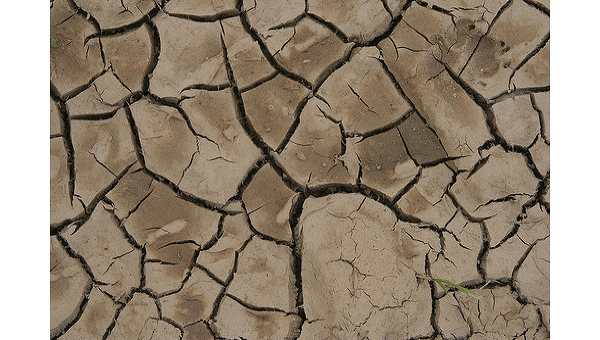Without further comment: human error to think all powerful. Here, it is useless to talk about global warming, but the sheer ignorance of the law of consequences of deforestation and agricultural policy that does not take into account the realities of the duty of intelligent management of soil: intelligence or the ability to adapt. It’s like that in China … but we do not protect against this risk that already exists in Spain.
See the video :
http://www.dailymotion.com/video/xcnmpg_grave-secheresse-en-chine-03-2010_news
2/4/2010 : http://fr.rian.ru/world/20100322/186300097.html
It is now; more than 51 million people suffer from water shortages in the south-west China, the economic damage caused by drought than $ 2.79 billion, announced Monday the official Xinhua news agency.”
“51.05 million People suffer from drought, more than 16 million people and 11 million head of livestock short of drinking water in the autonomous region of Guangxi and the provinces of Sichuan, Guizhou and Yunnan (southwest China), “states the press release.
31.03.2010, 07h39 :
http://www.leparisien.fr/flash-actualite-monde/secheresse-en-chine-plus-de-24-millions-de-personnes-a-court-d-eau-potable-31-03-2010-869433.php
Nearly 23 million hectares of arable land are affected by water shortages in the southwest. Neighbouring countries traversed by the Mekong, are also victims of the drought.
Guizhou, including 86 of the 88 cities lack water, more than 17 million people, is the province most affected.
Some rivers are dry and in some areas, villagers depend on the distribution of emergency drinking water established by the authorities.
Ces derniers mois, le gouvernement a tenté de faire tomber la pluie artificiellement à l’aide de fusées ou en dispersant des produits chimiques dans le ciel, mais, selon Chine Nouvelle citant des responsables, ces efforts n’ont guère été couronnés de succès en raison d’une humidité faible.
22.03.10 – 11:32 Conséquences directes des tempêtes de sable sévissent.
Les habitants du Nord de la Chine ont été encouragés lundi à rester chez eux tandis que de nombreuses régions et villes, dont la capitale Pékin, étaient balayées par des tempêtes de sable venant de Mongolie.
In recent months the government has tried to bring rain artificially using rockets or dispersing chemicals into the sky, but Xinhua said, quoting officials, these efforts have not been successful in because of low humidity.
Direct effects of dust storms are prevalent. The people of northern China have been encouraged to stay home Monday while many regions and cities including the capital Beijing, were swept by sandstorms from Mongolia. The weather service reported that the sandstorms that arrive on the North since Saturday were to affect a large portion of the current Chinese territory of Xinjiang to Beijing, about 3,000 miles east. Dust storms occur frequently in the arid north when the weather warms in spring and are swirling clouds of dust beyond China, South Korea, Japan or even the United States.
Deforestation accelerated in China and persistent droughts exacerbate the phenomenon.
http://www.lefigaro.fr/international/2010/04/03/01003-20100403ARTFIG00011-la-chine-a-fait-main-basse-sur-le-fleuve-sans-consulter-ses-voisins-.php
The Mekong is already at its lowest level in fifty years. “Today, the water level depends on the amount of water that China needs,” Thai fishermen are concerned
Ghostly figures on the banks of the Mekong, villagers watch helplessly as the river emptied of its waters.





